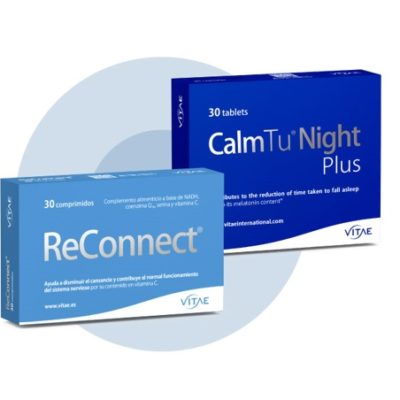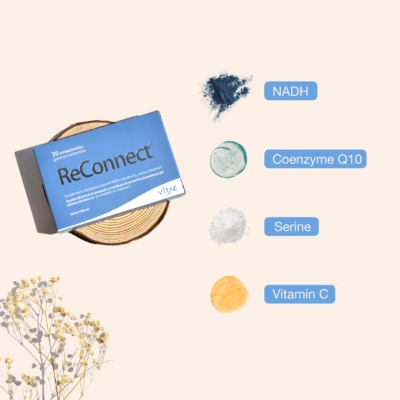We live in a world in which there is no time to stop, there is no word “pause”, everything is going from one place to another without stopping, and always hand in hand with stress. The situations and pressures we face every day cause our body and mind to go through a state that is sometimes difficult to recognize: stress. This is because there is not a single type but rather different types of stress, each with its own characteristics and symptoms. Stress is a feeling of physical or emotional tension. It can arise from any situation or thought that makes one feel frustrated, angry or nervous. It is our body’s reaction to a challenge or demand. It can be positive, like when you avoid danger or meet a deadline, but when it lasts over time, it can harm one’s health.
Types of stress
Stress can be classified according to its duration so different types of stress are established, such as:
Acute stress
It is the most common form in our society. It is caused by the demands of the most recent past or by anxiety about very close events in the future. This type of stress is what many people seek through multi-adventure experiences to raise their adrenaline. However, this situation maintained over time usually produces exhaustion, headaches, sleep disturbances, stomach problems, etc.
Acute episodic stress
It is typical in people with disordered lives and unrealistic needs or fears. It also occurs in people who have too many responsibilities on their shoulders: home, children, work, elderly relatives, etc. These types of lives generate constant worry for people that does not allow them to rest. This translates into significant physical and mental exhaustion.
Chronic stress
This is the most dangerous of all because it never ends. It usually occurs in traumatic situations or in lives where one is not satisfied. For example, unhappy marriages, students trapped by their careers, abuse, economic scarcity, unemployment, etc. This type of stress is what takes away hope from people, since they never see the way out of the problem, so they don’t bother looking for solutions either. They allow themselves to be absorbed by a state that ends up undermining their lives. This type of stress usually leads to depression or anxiety states.
Effect on our health of each type of stress
Chronic stress is stress that can have serious consequences for our health. Chronic stress can significantly increase the risks of heart disease, diabetes, obesity and other chronic diseases. It can also cause problems such as tension headaches, sexual dysfunction and hair loss and of course, it can have a big impact on mental health. Other ways that chronic stress can affect our body is:
- Insomnia
- Skin problems: hormonal acne breakouts, rosacea outbreaks, psoriasis, shingles outbreak
- Digestive problems: increased sensitivity to pain and bloating, intestinal problems
- Reproductive health: in men there may be a low sperm count, while in women a poor ability to conceive, irregular or missing menstrual periods
- Frequent need to urinate
- Cold, sweaty hands and feet
Main causes of stress
Everything can cause stress, but it depends on how each person can handle it. Some of the most common causes of stress are work and the workplace, money and finances, disasters and trauma, relationships and family. That is to say:
- Start a new job
- Dismissal
- Have a serious illness
- Problems at work
- problems at home
- Money problems
- Get married or divorced
- Death of a loved one
Symptoms of excessive stress
Stress can cause many types of symptoms, both physical and emotional. In fact, on many occasions we will not be aware that these symptoms are due to stress. Some signs that stress is affecting you may be the following:
- Diarrhea or constipation
- Bad memory
- Lack of energy and concentration
- Sexual problems
- Sleep problems or sleeping too much
- Weight loss or gain
- Stiff neck or jaw
- Fatigue
- Headaches
How to act when dealing with stress
- Recognize what you cannot change: that is, accept that there are certain things that cannot be changed, therefore, there will be no need for you to alter yourself.
- Exercise: It is one of the easiest and best ways to deal with stress, since our brain releases chemicals that will make us feel better.
- Time for yourself: do some activity that you like, take time for yourself. Go out to dinner, meet friends, go for a walk in the mountains, whatever, to make yourself feel better and forget about stress.
- Change your perspective: try to act with a positive attitude in the face of challenges. Replacing negative thoughts with positive ones will help that stress disappear and the way you see things will be better.
- Get enough rest: Getting enough rest at night can help you think more clearly and have more energy. It will make you better able to handle stressful situations.
- Healthy diet: Eating healthy foods helps energize the body and mind. Avoid foods high in sugar, processed, and consume plenty of vegetables, fruits, whole grains…
- Include supplements in your diet: include supplements in your diet that give you energy and vitality to face everyday life.
If you do all these actions and see that you are not able to manage stress on your own, one option is to ask a health professional for help and thus find other ways to deal with stress.
At Vitae we care about your health and that is why we try to offer the best of us, providing valuable ideas for your daily life. Many times, to achieve full well-being, supplementation is necessary, and below we tell you our proposal.
Vitae solution
ReConnect It is a combination based on NADH, coenzyme Q10, serine and vitamin C that, thanks to the synergy of its components, helps improve physical and cognitive performance. It helps increase the ability to manage stress, regulates the sleep-wake cycle, reduces fatigue, improves mood, improves cognitive functions (learning ability, concentration, memory and mental agility).






